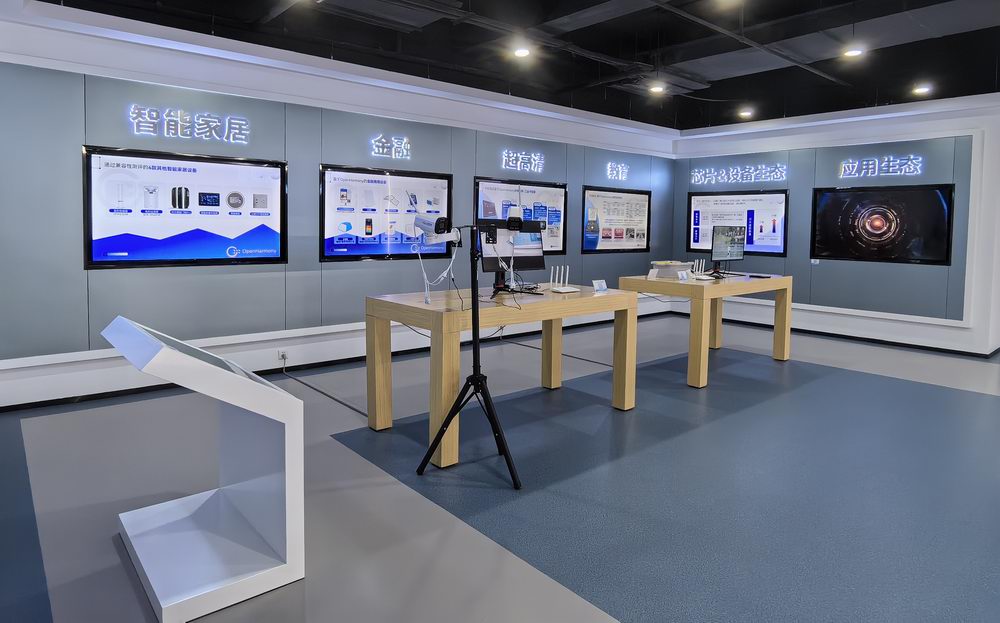Digital Tech's Role in Green Industry Upgrading

Digital technology plays a crucial role in steering industries toward sustainability. The Zhongkai High Tech Zone's Cloud Platform exemplifies this by supporting local enterprises in their journey of industry upgrading. This platform aids businesses in adopting eco-friendly practices, thereby reducing their carbon footprint. Notably, the tech industry contributes to 3.5% of global greenhouse gas emissions, with an annual increase of 6%. By leveraging digital solutions, Zhongkai High Tech Zone helps enterprises mitigate these impacts, fostering a greener industrial landscape.
Understanding Green Industry Upgrading
Definition and Importance
What is Green Industry Upgrading?
Green industry upgrading refers to the process of transforming traditional industrial practices into more sustainable and environmentally friendly ones. This transformation involves adopting new technologies and methods that reduce environmental impact. Industries aim to minimize waste, lower emissions, and use resources more efficiently. By doing so, they not only comply with environmental regulations but also contribute to a healthier planet.
Why is it important for sustainability?
Green industry upgrading plays a crucial role in achieving sustainability. It helps reduce the carbon footprint of industries, which is essential in combating climate change. For instance, Google's data centers have achieved 90% carbon-free energy, showcasing how technology can lead to significant reductions in carbon emissions. By shifting towards renewable energy sources like solar, wind, and hydroelectric power, industries can decrease their reliance on fossil fuels. This shift not only reduces greenhouse gas emissions but also promotes the use of clean energy technologies.
Role of Zhongkai High Tech Zone
Support for local enterprises
Zhongkai High Tech Zone actively supports local enterprises in their journey towards industry upgrading. The zone provides a robust Cloud Platform that assists businesses in adopting digital technologies. This platform offers tools and resources that help companies implement eco-friendly practices. By leveraging these digital solutions, enterprises can enhance their operational efficiency and reduce their environmental impact.
Contribution to sustainable development
The contribution of Zhongkai High Tech Zone to sustainable development is significant. By fostering an environment that encourages innovation and the adoption of green technologies, the zone plays a pivotal role in promoting sustainable industrial practices. Enterprises within the zone benefit from the support and resources provided, enabling them to upgrade their operations and align with global sustainability goals. This collaborative effort not only boosts the local economy but also sets a benchmark for other regions aiming for industry upgrading.
Key Digital Technologies in Green Industry
Internet of Things (IoT)
Applications in energy management
The Internet of Things (IoT) revolutionizes energy management by connecting devices and systems. IoT sensors monitor energy usage in real-time, allowing industries to optimize consumption. For example, smart meters track electricity use, helping companies identify wasteful practices. By implementing IoT solutions, businesses can reduce energy costs and lower their carbon footprint. This technology plays a crucial role in achieving sustainability goals.
Enhancing operational efficiency
IoT enhances operational efficiency by automating processes and improving data collection. Connected devices communicate with each other, streamlining operations and reducing human error. In manufacturing, IoT-enabled machines predict maintenance needs, preventing costly downtime. This proactive approach increases productivity and extends equipment lifespan. As a result, industries can operate more efficiently and sustainably.
Artificial Intelligence (AI)
Predictive maintenance and optimization
Artificial Intelligence (AI) transforms predictive maintenance by analyzing data to foresee equipment failures. AI algorithms process vast amounts of information, identifying patterns and anomalies. This insight allows industries to schedule maintenance before issues arise, minimizing disruptions. Predictive maintenance reduces repair costs and extends machinery life, contributing to sustainable practices.
Reducing waste and emissions
AI also plays a vital role in reducing waste and emissions. Machine learning models optimize production processes, minimizing resource use and waste generation. AI systems analyze supply chain data, identifying inefficiencies and suggesting improvements. By adopting AI technologies, industries can decrease their environmental impact and enhance sustainability.
Blockchain Technology
Ensuring transparency in supply chains
Blockchain technology ensures transparency in supply chains by providing a secure, immutable record of transactions. Each step in the supply chain is documented, allowing stakeholders to verify product origins and authenticity. This transparency helps industries maintain ethical sourcing and reduce environmental harm. Blockchain fosters trust among consumers and partners, promoting sustainable practices.
Facilitating sustainable practices
Blockchain facilitates sustainable practices by enabling traceability and accountability. Industries can track raw materials from source to final product, ensuring compliance with environmental standards. Smart contracts automate transactions, reducing paperwork and energy use. By integrating blockchain technology, businesses can enhance their sustainability efforts and meet global environmental goals.
Benefits of Digital Tech in Green Industry
Environmental Impact Reduction
Lowering carbon footprint
Digital technology significantly reduces the carbon footprint of industries. By moving operations to the cloud, businesses cut down on energy consumption and emissions. The Zhongkai High Tech Zone Cloud Platform exemplifies this by providing enterprises with tools to optimize their processes. This shift not only decreases the reliance on physical infrastructure but also minimizes the environmental impact of manufacturing processes. As a result, industries can achieve their sustainability goals more effectively.
Efficient resource utilization
Efficient resource utilization becomes achievable through digital technologies. The integration of Internet of Things (IoT) devices allows industries to monitor and manage resources in real-time. For instance, smart sensors track water and energy usage, enabling companies to identify inefficiencies. By addressing these issues, businesses reduce waste and improve their overall resource management. This proactive approach supports industry upgrading by fostering a more sustainable and eco-friendly environment.
Economic and Operational Efficiency
Cost savings through automation
Automation powered by digital technology leads to substantial cost savings. Industries benefit from streamlined operations and reduced labor costs. The Zhongkai High Tech Zone Cloud Platform aids enterprises in implementing automation solutions, enhancing their productivity. Automated systems handle repetitive tasks, freeing up human resources for more strategic roles. This efficiency not only lowers operational costs but also accelerates industry upgrading by boosting competitiveness.
Improved decision-making processes
Digital technologies enhance decision-making processes by providing data-driven insights. Advanced analytics tools process vast amounts of information, offering valuable insights into market trends and consumer behavior. Enterprises in the Zhongkai High Tech Zone leverage these tools to make informed decisions, aligning their strategies with sustainability objectives. Improved decision-making supports industry upgrading by enabling businesses to adapt quickly to changing market demands and environmental standards.
Challenges and Solutions in Implementation
Technological Barriers
Integration with existing systems
Industries face significant challenges when integrating new digital technologies with existing systems. Many companies rely on legacy systems that may not easily accommodate modern digital solutions. This incompatibility can hinder the process of industry upgrading. Businesses must carefully plan and execute the integration to ensure a seamless transition. They need to assess their current infrastructure and identify areas that require updates or replacements. By doing so, they can effectively incorporate digital technologies into their operations.
High initial investment costs
The high initial investment costs associated with digital technology adoption pose another barrier to industry upgrading. Implementing advanced technologies like IoT, AI, and blockchain requires substantial financial resources. Small and medium-sized enterprises (SMEs) often struggle to secure the necessary funding. However, investing in digital transformation can lead to long-term cost savings and increased competitiveness. Companies must weigh the initial expenses against the potential benefits to make informed decisions.
Solutions and Strategies
Government and policy support
Government and policy support play a crucial role in overcoming technological barriers. Authorities can provide financial incentives, such as grants and tax breaks, to encourage businesses to invest in digital technologies. They can also establish regulations that promote sustainable practices and industry upgrading. By creating a favorable environment for innovation, governments can help industries transition to more sustainable operations. This support is essential for fostering a culture of digital transformation.
Collaborative innovation and partnerships
Collaborative innovation and partnerships offer effective solutions for addressing the challenges of digital technology implementation. Companies can work together to share resources, knowledge, and expertise. By forming alliances with technology providers, research institutions, and other businesses, they can accelerate the process of industry upgrading. These partnerships enable companies to access cutting-edge technologies and develop innovative solutions tailored to their specific needs. Collaboration fosters a spirit of innovation and drives sustainable development.
Digital technology plays a pivotal role in green industry upgrading. It drives efficiency and sustainability across sectors. The green economy, with a growth rate of 14% over the past 12 years, highlights this trend. Future trends point towards increased investment in energy management and transport equipment. Zhongkai High Tech Zone continues to support enterprises in adopting these technologies. Their Cloud Platform aids businesses in reducing emissions and enhancing transparency. As industries evolve, Zhongkai's commitment to fostering sustainable practices remains crucial for continued progress.
See Also
Zhongkai High-tech Zone: Pioneering Huizhou's Electronic Innovation
Maximizing Growth Opportunities Through High-tech Zones
Huizhou's High-tech Zone: Fueling Industrial Advancement
Zhongkai High tech Zone National foreign trade transformation and Upgradi Base(Electronic Information)Cloud Platform.
Address: Zhongkai High-tech Zone,Huizhou City ,Guangdong,China
E-mail: huizhoueii@163.com 13510001271@163.com
Tel: +86-0752-3279220 Mobile: +86-13510001271


